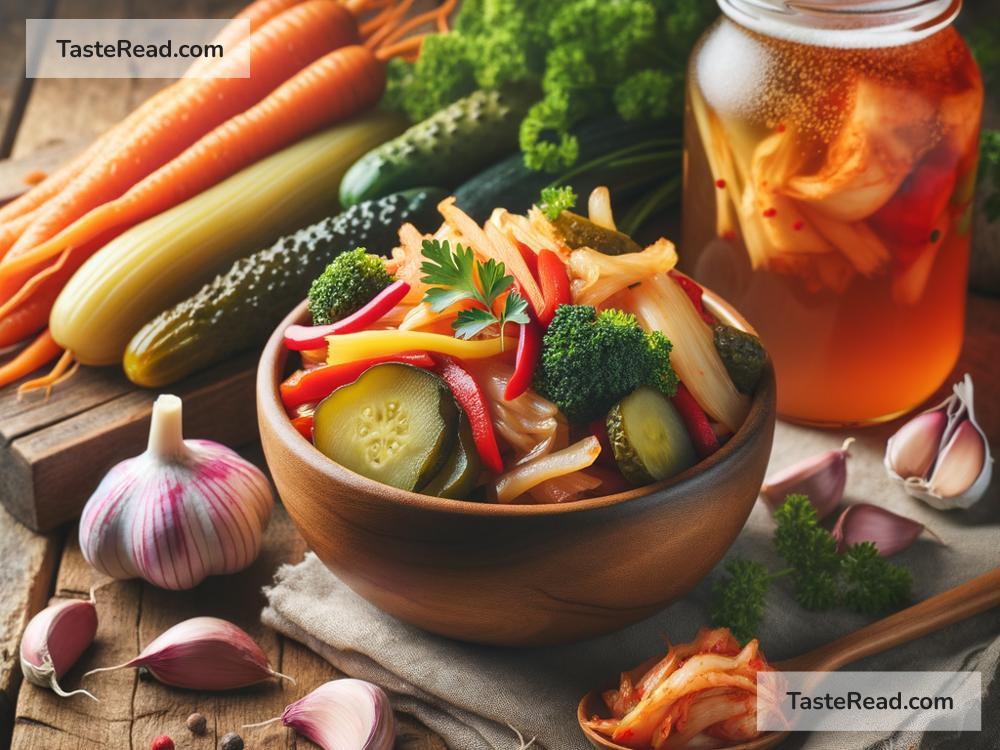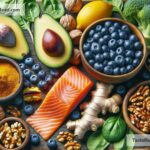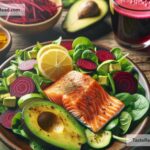Foods That Promote Healthy Intestinal Flora: What to Eat for a Happy Gut
Your gut is home to trillions of tiny microorganisms, like bacteria, fungi, and other microbes. While that might sound scary, these organisms play a vital role in keeping your body functioning properly. A healthy balance of intestinal flora—or gut bacteria—can help improve digestion, strengthen your immune system, and even boost your mood. But what’s the secret to maintaining this balance? The foods you eat! The choices you make at mealtime can have a big impact on the health of your gut.
Here are some of the best foods you can eat to promote healthy intestinal flora.
1. Probiotic-Rich Foods
Probiotics are live bacteria and yeasts that are good for your gut. They help restore the balance of intestinal flora by adding beneficial bacteria to your digestive system. You can find probiotics in many fermented foods.
- Yogurt: One of the most popular probiotic foods, yogurt contains strains of live bacteria like Lactobacillus and Bifidobacterium. Look for yogurt labeled with “live and active cultures.”
- Kefir: Similar to yogurt but thinner in texture, kefir is a fermented milk drink packed with probiotics. It contains a wider variety of bacteria than yogurt.
- Sauerkraut: This fermented cabbage dish is not only tangy and delicious but also loaded with probiotics. Choose unpasteurized sauerkraut to ensure the live cultures are intact.
- Kimchi: A spicy Korean dish made from fermented vegetables (usually Napa cabbage and radishes), kimchi is full of probiotics and vitamins.
- Miso: A fermented soybean paste used in soups and sauces, miso provides beneficial bacteria and adds a savory flavor to your meals.
- Pickles: Fermented pickles (not pickles preserved in vinegar) can provide gut-friendly bacteria.
2. Prebiotic Foods
Prebiotics are the food that probiotics—the healthy bacteria in your gut—need to thrive. These are types of dietary fiber that help stimulate the growth of beneficial bacteria.
- Bananas: Bananas are an accessible, delicious way to support gut health. They contain fiber and resistant starch, which act as prebiotics.
- Onions: Raw onions are rich in inulin, a type of prebiotic fiber that feeds your gut bacteria.
- Garlic: Like onions, garlic contains inulin and other compounds that encourage the growth of good bacteria.
- Leeks: Another member of the onion family, leeks are packed with prebiotics. Try adding them to soups, salads, or sautés.
- Asparagus: High in fiber and nutrients, asparagus also contains prebiotic compounds to nurture your gut microbiome.
- Chicory Root: Often used as a coffee substitute, chicory root is incredibly rich in prebiotic fiber that supports gut health.
3. High-Fiber Foods
Fiber is important for digestion because it helps food move through your system. Certain types of fiber also feed beneficial bacteria.
- Whole Grains: Foods like oats, barley, and quinoa are loaded with fiber that supports gut flora and keeps your digestion running smoothly.
- Apples: Apples contain pectin, a type of fiber that acts as a prebiotic. They also support the production of short-chain fatty acids, which are good for gut health.
- Legumes: Lentils, chickpeas, and beans like black beans and kidney beans are excellent fiber sources that also promote healthy bacteria in the gut.
- Nuts and Seeds: Almonds, walnuts, and chia seeds are high in fiber and healthy fats, making them great for your gut.
4. Polyphenol-Rich Foods
Polyphenols are natural compounds found in certain foods. While they’re better known for their antioxidant properties, they also have a positive effect on gut health by increasing good bacteria.
- Berries: Strawberries, blueberries, raspberries, and blackberries are high in polyphenols that support a diverse gut microbiome.
- Green Tea: Rich in antioxidants, green tea helps encourage the growth of beneficial gut bacteria while reducing harmful ones.
- Dark Chocolate: In moderation, dark chocolate with a high cocoa percentage is a treat that contains polyphenols. It’s good for both your gut and your mood!
- Olive Oil: Extra virgin olive oil is full of polyphenols, which can enhance gut health and overall well-being.
5. Fatty Fish
Fatty fish, like salmon, mackerel, and sardines, contain omega-3 fatty acids that may reduce inflammation in your gut and help maintain a healthy balance of gut bacteria. These healthy fats can also positively impact your brain and heart health.
6. Bone Broth
Bone broth is rich in gelatin, amino acids, and minerals that can support your gut health. Many people consume it to help heal the lining of the gut and maintain a healthy balance of bacteria.
Final Thoughts
What you eat plays a huge role in the health of your gut. By incorporating probiotics, prebiotics, fiber, polyphenols, and omega-3 fats into your diet, you can nurture your gut flora and enjoy better digestion and overall wellness.
Remember, a healthy gut doesn’t just benefit your stomach—it impacts your entire body, from your immune system to your mental health. So, start with small but effective changes in your diet, and your gut will thank you! Make choices that help your intestinal flora thrive, and enjoy a healthier, happier you.


